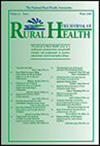Impact of Medicaid expansion on stage of diagnosis of lung cancer for rural and urban patients in New Hampshire
Abstract
Purpose
This study examines the impact of Medicaid expansion under the Affordable Care Act on the stage of lung cancer diagnosis among rural and urban patients in New Hampshire.
Methods
Data from the New Hampshire State Cancer Registry spanning 2010-2019 were analyzed to compare lung cancer diagnosis stages before and after the July 2014 Medicaid expansion. Rural-urban categorization utilized Rural-Urban Continuum Codes, and logistic regression with difference-in-difference analysis assessed the differential effects of Medicaid expansion on late-stage diagnoses between rural and urban patients.
Findings
Post-expansion, there was a significant decrease in the proportion of late-stage lung cancer diagnoses statewide. Rural patients initially had higher rates of late-stage diagnoses compared to urban patients, but post-expansion, this disparity diminished significantly. Logistic regression indicated reduced odds of late-stage diagnosis among rural patients after expansion (OR = 0.719, P = .035), demonstrating a greater benefit in rural areas.
Conclusions
Medicaid expansion in New Hampshire was associated with a substantial reduction in late-stage lung cancer diagnoses, particularly benefiting rural patients who historically faced higher barriers to health care access. These findings underscore the potential of Medicaid expansion to mitigate rural-urban disparities in cancer care outcomes.

 求助内容:
求助内容: 应助结果提醒方式:
应助结果提醒方式:


